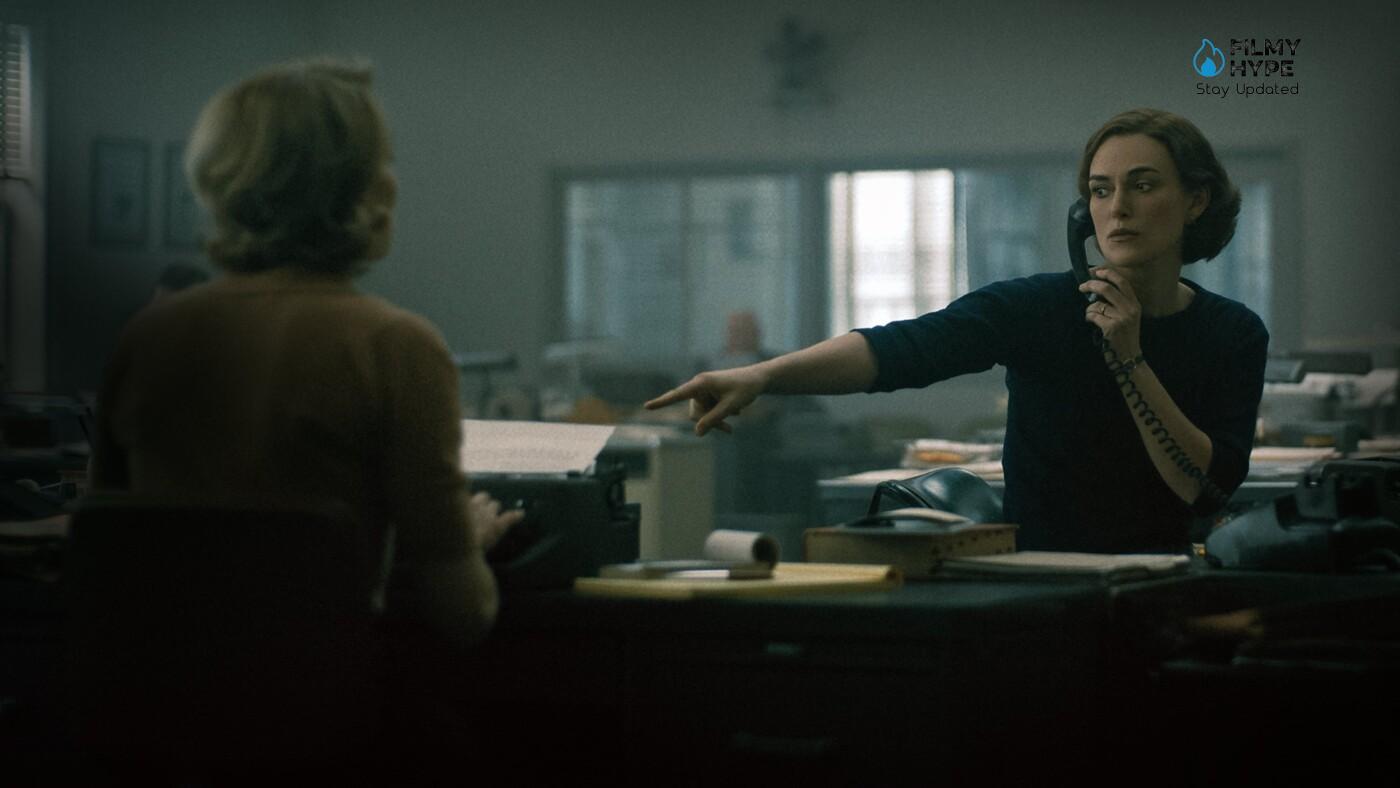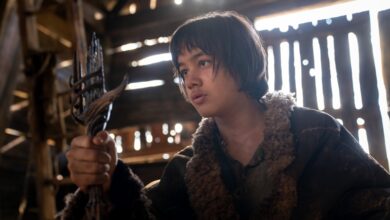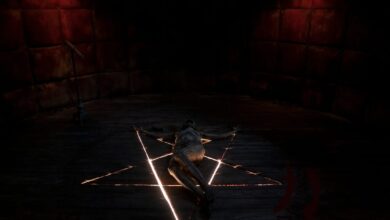Boston Strangler: The Terrifying True Story Behind the Hulu Movie
Boston Strangler is the new film by Matt Ruskin released in 2023. The true story that inspired the film on Hulu and Disney+ is that of the serial killer who terrorized a city in the United States from 1962 to 1964. During his criminal activity, the Boston Strangler killed 13 victims, the killer was identified as Albert DeSalvo who, although self-confessed, was never tried for these murders. Audiovisual content about serial killers is very popular these days: a survey revealed that nearly two-thirds of American adults (and nearly 80% of millennials) are fans of it. Albert DeSalvo was born in Chelsea, Massachusetts to Frank and Charlotte DeSalvo. His father was an Italian immigrant, and his mother was an Irish immigrant. DeSalvo began his criminal career with petty thefts and robberies, hence the negative evolution that led him to be a rapist and a murderer. His first murder dates back to 1962. His victims were unmarried women aged between 19 and 85.

Boston Strangler: The Terrifying True Story?
Hulu’s Boston Strangler will surely be the last on the list of movies of the genre to see, available on Hulu from March 17, 2023. The notorious killer has largely avoided being the subject of media content and, in fact, the only notable case project was the 1968 film Boston Strangler, starring Tony Curtis and Henry Fonda. Interestingly, the man behind the “Silk Stocking Murders” remains somewhat in the shadows even in this project, which mainly focuses on journalists Loretta McLaughlin (Keira Knightley) and Jean Cole (Carrie Coon) and how they fought to inform the women of Boston through a series of articles about the killer. But who was actually hiding behind this terrifying nickname? Find out with us in this article.
When Did the Boston Strangler Murders Start?
On June 14, 1962, 55-year-old Anna Slesers was found dead by her son on the kitchen floor of her apartment. The seamstress and devout church-goer had been strangled to death: the blue jacket she wore was ripped off and the belt wrapped around her neck in a bow. Her apartment had been ransacked, suggesting that perhaps Slesers had stumbled upon a burglar. The truth, however, was far more chilling: the woman had been sexually assaulted by the perpetrator and there was no evidence to suggest she had forced entry.
Another victim, Mary Mullen, 85, was found on June 28, having died of a heart attack before the killer could do anything. The conditions in which the two victims were found offered no evidence to suggest a serial killer on the loose, until the discovery on June 30, 1962, of two other victims, which strongly suggested otherwise. Nina Nichols, 68, was found murdered in her home; virtually identical was the case of Helen Blake, 65, divorced, whose body was found the same day. As in the Slesers case, both murder scenes were staged to look like a burglary; they were sexually assaulted and found with the killer’s unnerving “calling card”: Nichols’ stockings were tied in a bow around his neck and, likewise, Blake’s bra.
Fear Invades Boston In The Early 60s?
Boston police were faced with the terrifying reality that a serial killer, who earned the nickname “the Boston Strangler,” was on the loose, possibly a psychopath with a hatred for older women. Police Commissioner Edmund McNamara canceled the police leave, requesting the intervention of the same due to the serious situation. The media issued warnings, advising women to lock their doors and be careful around strangers. The Boston area population was paralyzed with fear, and despite the increased police presence and warnings, 9 other women, ranging in age from 19 to 85, were reported to have fallen victim to the killer. The last victim was found on January 4, 1964, after which the killings ceased.
Was the Boston Strangler Ever Caught?
On October 27, 1964, a man, posing as a detective, entered a house and assaulted a woman. However, he didn’t kill her, in fact, he left the house after saying “I’m sorry”. The woman reported the assault to the police, who arrested the attacker shortly after. The man’s name was Albert DeSalvo, and after photos of him were released, several other women came forward to confess that they, too, had been raped by DeSalvo. Police arrested DeSalvo on multiple rape charges but didn’t tie him to the Boston Strangler case … until DeSalvo himself did not confess to being the killer himself. His confession was certainly plausible, especially after providing the police with intricate details of the murders that had not been made public. Sadly, the confession wasn’t enough to indict DeSalvo for the Boston Strangler murders. Additionally, there were two other complications that prevented DeSalvo from being charged: the first, was the absence of physical evidence linking him to the crimes. The second issue would have been more problematic and would have led to theories that DeSalvo was not the Boston Strangler at all, or that he was one of the two Stranglers who had committed the heinous acts.
DeSalvo‘s confession surfaced during his detention at Bridgewater State Hospital, where he met George Nassar. DeSalvo confessed to his claims to Nassar, who contacted his attorney to report the news. However, it was their interaction during this time that kept police from making a clear association between DeSalvo and the murders. Some believe that DeSalvo confessed everything to Nassar, while others are convinced that Nassar is the real Boston Strangler, who gave DeSalvo details of the crimes as part of a plot to claim the $10,000 reward offered by the police to share with their families. Unable to convict DeSalvo as A Boston Strangler, DeSalvo was instead jailed for life for robbery and sexual offenses. He would later retract his confession, and if there was more to it, DeSalvo took it to his grave after being stabbed to death in prison on November 25, 1973. In 2013, DNA evidence conclusively linked DeSalvo to the death of Mary Sullivan, but it would be the only Strangler murder to find a solution, as DNA evidence was not applicable to other murders.
Loretta Mclaughlin’s Involvement In The Affair?
McLaughlin, star of the upcoming film, entered serial killer history in 1962. The first four murders caught the attention of McLaughlin, who noticed that there was a connection other than the grisly bows around the victims’ necks: all four women wore eyeglasses, loved classical music, and had ties to a local hospital. After pairing up with Cole, the two began spreading the details in the community, warning women in and around Boston to stay alert.
McLaughlin and Cole, who together came up with the nickname ” The Boston Strangler,” would eventually write 29 articles total on the Boston Strangler, his victims, the killer’s scheme, and updates on the police investigation. The road has been rocky, with an editor at the Boston Record American debating the value of publishing a series about the death of “nobody” and the sexism rampant in the industry that continually posed obstacles to their work.
All the Boston Strangler Victims?
Often, true crime audiovisual projects or those that want to tell the story of the most terrible serial killers tend to “forget” the victims of the story, concentrating every productive effort on the actors and narrative representation of the villain. Although the film available on Hulu and Disney+ has the story of the Boston Strangler as its thematic focus, it is right and proper to honor the innocent victims of the killer’s wickedness. We remember:
- Anna Slesers, 55, seamstress, found on June 14, 1962.
- Mary Mullen, 85, retired, found June 28, 1962.
- Nina Nichols, 68, physical therapist, found June 30, 1962.
- Helen Blake, 65, nurse, found June 30, 1962.
- Ida Irga, 75 years old, retired, was found on August 19, 1962.
- Jane Sullivan, 67, a nurse, was found on August 21, 1962.
- Sophie Clark, 20, a hospital technician, was found on December 5, 1962.
- Patricia Bissette, 23, receptionist, found December 31, 1962.
- Mary Brown, 69, retired, found March 6, 1963.
- Beverly Samans, 23, music therapist, found May 6, 1963.
- Evelyn Corbin, age 58, employed at the Sylvania Lighting Plant, found September 8, 1963.
- Joann Graff, 23, artist and Sunday school teacher, found November 11, 1963
- Mary Sullivan, age 19, employee at Filene’s department store, found January 4, 1964.






